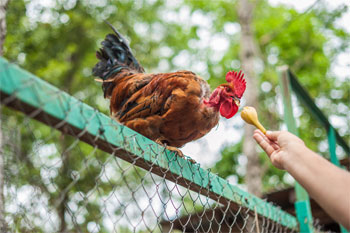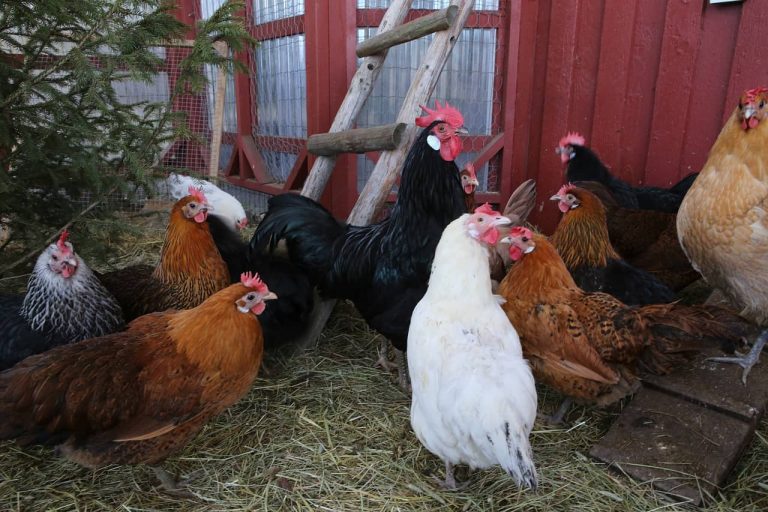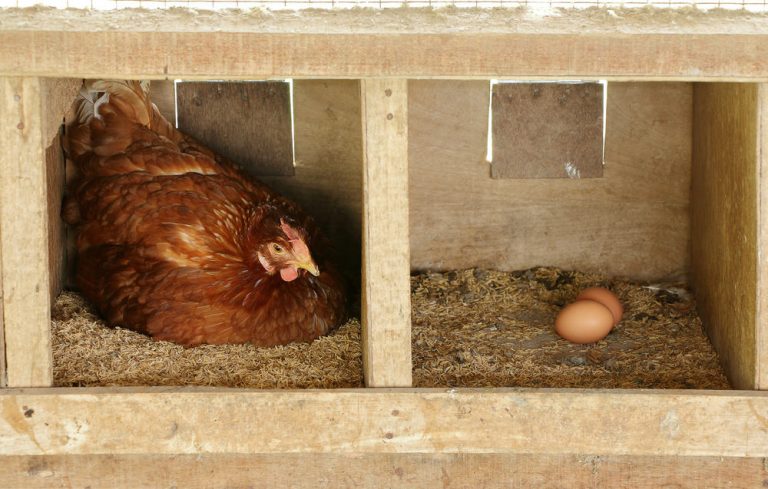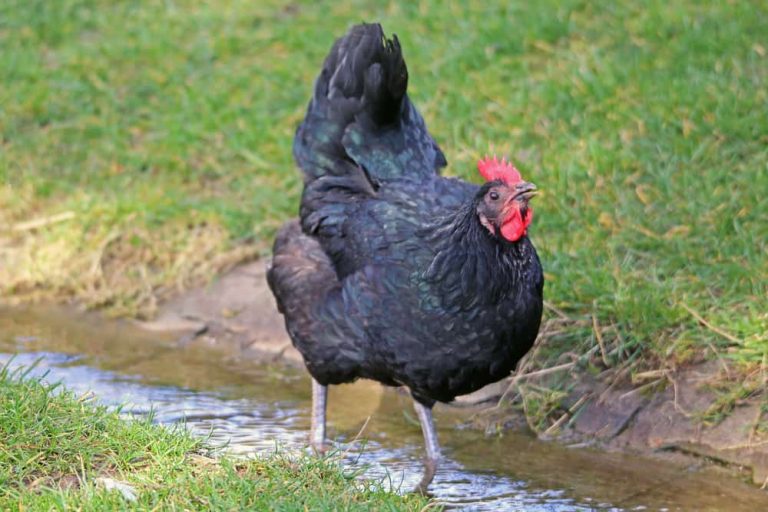You’d agree that chickens are some of the easiest pets to keep and care for. This is because they are omnivorous just like us, and so they eat the very same things we do. All you need to do is know the effect different kinds of food will have on their health since they are opportunistic feeders. They try anything.
That said, some of the commonest foods on our plates are noodles, like pasta and spaghetti. So many people have asked whether chickens can eat pasta.
Before proceeding to answer the question, it is important to point out right away that chickens typically eat commercial feeds specifically formulated for them. Such feeds consist mainly of soybeans, corn, wheat, and other grains.
Nevertheless, it won’t harm if you give them occasional treats with superfoods such as pasta, papaya, and so on. Let us look into this type of food to find out if it’s safe and beneficial for your chicken.
Contents
Yes! Your chicken can safely eat pasta.
Chickens can eat pasta. However, it is not as simple as just tossing a large bowl of your leftover pasta into your chicken coop. That would be a disaster in waiting. There are a few factors to consider before serving your chicken with pasta.
- Nutritional Balance
Chickens require a well-balanced diet to meet their nutritional needs. While pasta contains carbohydrates, it may not provide all the necessary nutrients. Ensure that pasta is offered as a treat in addition to a balanced chicken feed that includes essential proteins, vitamins, and minerals.
- Portion Size
Pasta should be eaten in moderation. Chickens have small stomachs and can easily overeat, leading to weight gain and potential health issues. Limit the amount of pasta you offer and use it as a supplement, not a staple food.
- Cooking Method
Plain, unseasoned pasta is the safest option for chickens. Avoid adding sauces, spices, or excessive salt, as these can be harmful to their digestive system. Cook the pasta thoroughly without adding any oils or fats.
- Age of Chickens
Consider the age of your chickens. Young chicks have different dietary requirements than adult birds. Pasta should only be introduced as a treat when children are fully developed and eating a balanced diet.
- Dietary Restrictions
If your chickens have specific dietary restrictions or health conditions, consult with a veterinarian before introducing pasta into their diet. Some chickens may have allergies or sensitivities that can be aggravated by certain food types.
- Food Safety
Ensure that the pasta you offer is fresh and not spoiled. Discard any pasta that has been left out at room temperature for an extended period. Chickens are susceptible to foodborne illnesses, so it’s important to provide them with safe and uncontaminated food.
- Variety and Balance
While chickens can enjoy pasta occasionally, it’s crucial to provide a diverse range of foods to meet their nutritional needs. Offer a mix of grains, vegetables, fruits, and protein sources to ensure a well-rounded diet.
Remember, pasta should not replace a chicken’s regular feed. It should be offered sparingly, alongside a balanced diet appropriate for their age and health status. If in doubt, consult a poultry expert or veterinarian for specific dietary recommendations.
Nutritional Benefits of Pasta for Chicken
We have looked into the nutritional content of pasta, and there are numerous The reason it is in our diet is because of the same benefits. Similarly, pasta can provide some nutritional benefits for chickens when offered in moderation. Here are a few potential benefits:
- Carbohydrates: Pasta is a good source of carbohydrates, which are an important energy source for chickens. Carbohydrates help provide the necessary energy for growth, egg production, and overall body functions.
- Calories: Pasta is relatively calorie-dense, which can be beneficial for chickens, especially during colder months or when they need extra energy. It can help maintain body temperature and support their overall health and activity levels.
- B Vitamins: Certain types of pasta, such as whole wheat pasta, contain B vitamins like niacin, thiamine, and riboflavin. These vitamins are essential for the proper functioning of a chicken’s metabolism, nervous system, and overall growth.
- Minerals: Pasta contains small amounts of minerals like iron and selenium. These minerals are important for maintaining healthy blood cells, supporting the immune system, and promoting overall well-being in chickens.
While pasta can offer some nutritional benefits, it’s important to note that it should not replace a balanced chicken feed. Pasta should only be given as an occasional treat, and the majority of a chicken’s diet should consist of a high-quality commercial feed that provides a complete range of nutrients.
Pasta Feeding Considerations for Chicken
We have seen just how much your chicken can benefit from a serving of pasta. Serving it inappropriately can lead to several adverse outcomes. While pasta can be offered to chickens as a treat, there are potential dangers and considerations to keep in mind:
- Nutritional Imbalance
Feeding too much pasta to chickens can disrupt their nutritional balance. Pasta is high in carbohydrates but lacks many essential nutrients, such as specific proteins, vitamins, and minerals, that are necessary for a chicken’s overall health. Overreliance on pasta can lead to nutrient deficiencies and health problems in the long run.
- Obesity and Overeating
Chickens have a tendency to overeat if given unrestricted access to pasta. Excessive consumption of pasta, which is calorie-dense, can lead to weight gain and obesity. Overweight chickens may experience reduced mobility, decreased egg production, and an increased risk of health issues like heart problems and joint pain.
- Digestive Issues
Chickens have a specialized digestive system adapted to process their natural diet. Pasta, particularly if it contains added oils, fats, or seasonings, can be challenging for chickens to digest. It may cause digestive upset, including diarrhea or constipation, which can negatively impact their health and well-being.
- Displacement of a Balanced Diet
If chickens fill up on pasta, they may eat less of their regular, nutritionally balanced feed. This can result in nutrient deficiencies and affect their overall health, growth, and egg production. Pasta should only be given as a small supplement to their regular diet, not as a substitute.
- Allergies and Sensitivities
Chickens can have individual sensitivities or allergies to certain foods, including pasta. It’s important to monitor their reactions after introducing pasta and discontinue feeding it if any adverse symptoms occur, such as itching, swelling, or changes in behavior.
- Food Safety Concerns
If the pasta is spoiled or contaminated, it can pose health risks to chickens. Always ensure that the pasta is fresh, properly cooked, and free from any mold or toxins. Chickens are susceptible to foodborne illnesses, so food safety should be a priority.
Remember, pasta should be offered sparingly and as a treat rather than as a significant part of a chicken’s diet. It’s crucial to prioritize a well-balanced and nutritionally complete feed designed specifically for chickens to ensure their optimal health and well-being.
Conclusion
Your feathered friends deserve an occasional treat with special snacks such as pasta. This should replace the usual commercial feeds specifically formulated to support the nutritional requirements of the bird’s body. They need a balanced diet from regular feeds but also occasional treats from other types of feed, including pasta. The most important consideration to keep at the back of your mind is that any treat should not replace your chicken’s regular diet.




